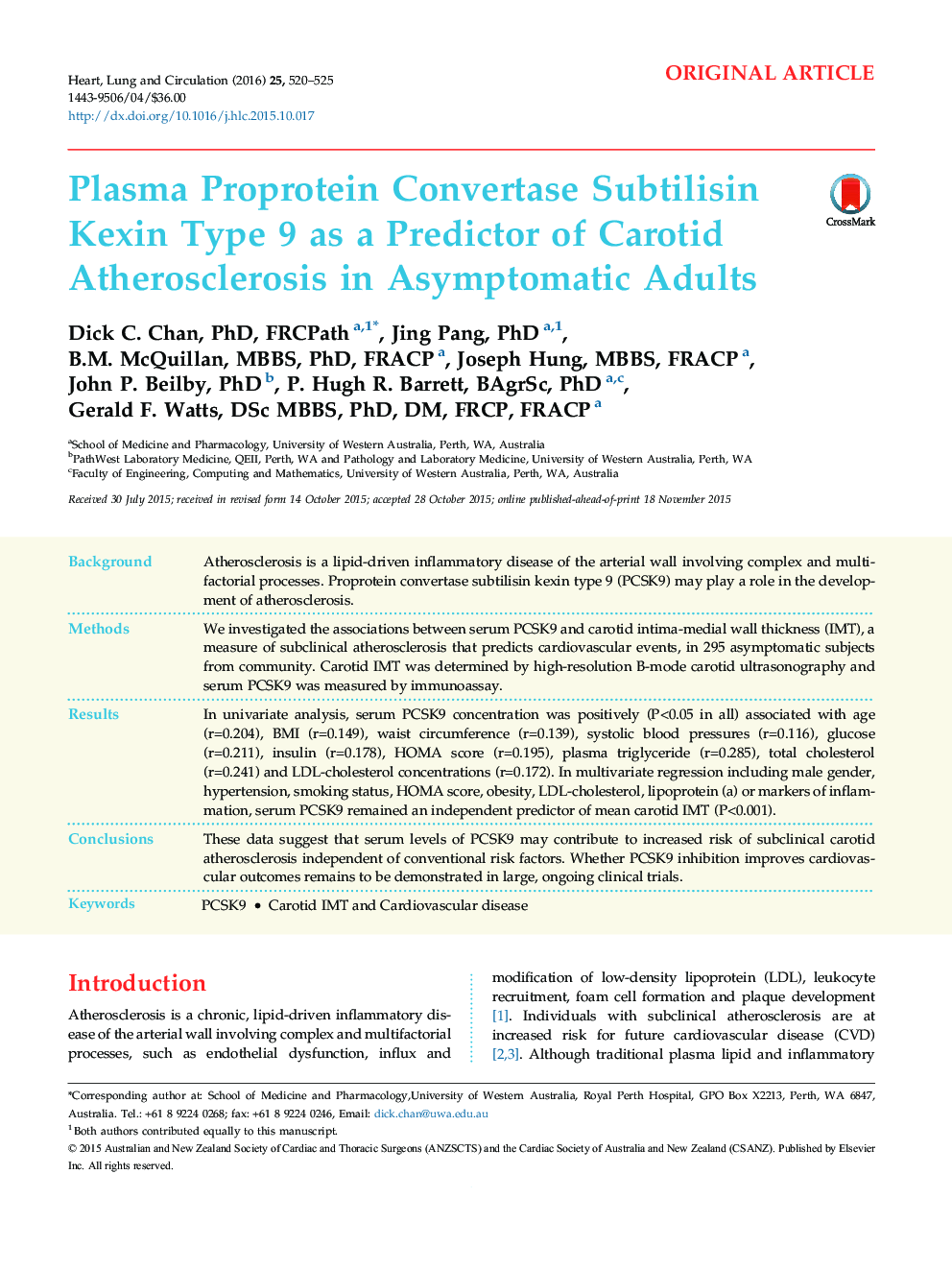| Article ID | Journal | Published Year | Pages | File Type |
|---|---|---|---|---|
| 2917049 | Heart, Lung and Circulation | 2016 | 6 Pages |
BackgroundAtherosclerosis is a lipid-driven inflammatory disease of the arterial wall involving complex and multifactorial processes. Proprotein convertase subtilisin kexin type 9 (PCSK9) may play a role in the development of atherosclerosis.MethodsWe investigated the associations between serum PCSK9 and carotid intima-medial wall thickness (IMT), a measure of subclinical atherosclerosis that predicts cardiovascular events, in 295 asymptomatic subjects from community. Carotid IMT was determined by high-resolution B-mode carotid ultrasonography and serum PCSK9 was measured by immunoassay.ResultsIn univariate analysis, serum PCSK9 concentration was positively (P<0.05 in all) associated with age (r=0.204), BMI (r=0.149), waist circumference (r=0.139), systolic blood pressures (r=0.116), glucose (r=0.211), insulin (r=0.178), HOMA score (r=0.195), plasma triglyceride (r=0.285), total cholesterol (r=0.241) and LDL-cholesterol concentrations (r=0.172). In multivariate regression including male gender, hypertension, smoking status, HOMA score, obesity, LDL-cholesterol, lipoprotein (a) or markers of inflammation, serum PCSK9 remained an independent predictor of mean carotid IMT (P<0.001).ConclusionsThese data suggest that serum levels of PCSK9 may contribute to increased risk of subclinical carotid atherosclerosis independent of conventional risk factors. Whether PCSK9 inhibition improves cardiovascular outcomes remains to be demonstrated in large, ongoing clinical trials.
